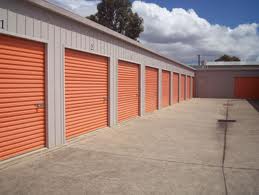UNITED STATES—De-cluttering isn’t just about getting rid of “stuff,” it’s about freeing yourself from stress—clutter translates to stress. All that stuff around keeps us on edge, and when you remove it, what a change it makes!
By focusing on the outside you can accelerate and generate the results you want. A perfect example is Mr. Salamon, a poet from Pittsburgh, looking lean and mean. In preparing for a move to Florida, he went through his house and tossed away 30 years of accumulated books, papers and stuff. He felt suddenly lighter inside and out. This happened during last summer’s hot spell, which may have helped. Point is: when Mr. Salamon stood on the scales, he found 30 pounds had slipped away.
When facing a major move, we face the big decisions what to chuck and what to save. And it suddenly becomes very clear what to throw overboard. Start with something small and you’ll see what I mean. Pick a small project such as your wallet.
Pick your wallet up and take out everything. Certain items will strike you immediately as superfluous: like last week’s lottery ticket and that card with stars to get the free coffee at that place you haven’t been in months. When you shuffle the contents of your wallet, you get the added bonus of discovering where things are and delightedly finding what you didn’t know you had. I discovered two Tap cards in mine; one goes back on the shelf, and one less item to keep track is an addition to our store of peace.
Simplifying lifestyle is the wave of the future. We no longer live in an information age—there’s too much of that, it becomes more junk—we live in an organization age. Consumers, commerce and a new contentment, I predict, will flourish; those who teach us to be happier with what we have and tailor our devices and surroundings to our true needs will produce wealth for all.
Take clothes, which did not even exist until about 20,000 years ago. Nobody needs to have more than two pairs of shoes or three pairs of underwear. Nobody needs more than one shirt—the one you’re wearing. When you have a minimal wardrobe, it’s amazing how the combinations multiply. The complements will multiply. Believe me, nobody is monitoring for repeat clothing—only the fashion monitor in your mind. And you know what? A minimal wardrobe means you can afford to have the best materials and style.
Having less clothes to care for means creating more time and energy for yourself and doing the things you love to do. Having less garments to wash and fold brings dividends of peace and time. It comes from regaining a little piece of power over your life, a power many people have relinquished. All the storage-lockers are monuments to allowing things to take over our lives to the extent that these things extort a monthly rent while human beings without a roof over their heads crouch on the fringes of our fanciest streets.
There is a funny trap of the mind that tricks us into becoming packrats. Once upon a time we threw away something and then it turned out to be “valuable.” I once threw out a raggedy flyleaf to one volume Winston Churchill’s History of English Speaking People’s, and years later a rare book dealer told us that it greatly diminished the value of the complete set. Something like this gets disproportionately seared into the memory, our protective instinct goes into overdrive and we think we’ll be “safe.” At the same time, the very human knack for remembered pain means you only have to get burnt once to never play with matches again.
Like anything, don’t go crazy with de-cluttering. Try out a little corner of your outer life, even only your pockets get cleared of receipts and gum wrappers and lint. When just this microcosm is freed to be clean and bask in tidiness, a weight will lift from you mind. That alone will aid your body to follow your mind’s example and lighten up.
Grady Miller is the author of “Lighten Up Now: The Grady Diet,” available on Kindle.






